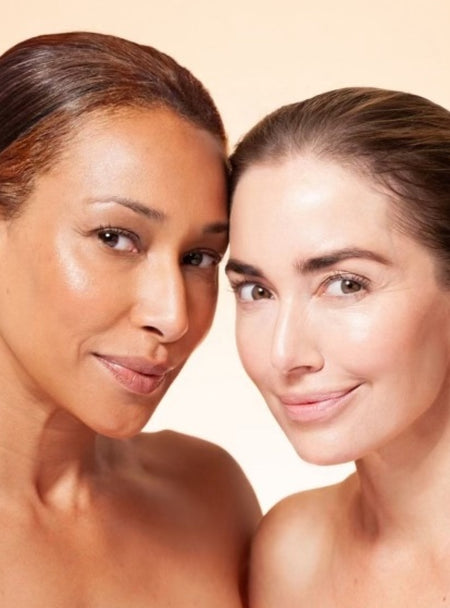Your skin is not just a protective barrier; it plays a crucial role in regulating body temperature and maintaining your overall health. Investing in a proper skincare routine can enhance your appearance, boost your confidence, and prevent future skin problems. As you age, your skin's needs evolve, making it essential to adapt your regimen to address concerns like wrinkles and acne effectively.
Moreover, skincare goes beyond aesthetics. It can positively impact your mental well-being as you cultivate a routine that prioritizes self-care. By using products formulated with organic ingredients, you ensure that your skin receives the nourishment it deserves without harmful chemicals, making a sustainable choice that benefits both you and the environment.
Understanding the importance of skincare can empower you to make informed decisions that enhance your skin's health and vitality. From preventing damage to rejuvenating aging skin, the right skincare approach can transform not only your outer appearance but your self-image as well.
Understanding Skin Health
Maintaining skin health is crucial for both aesthetics and overall well-being. Key components of skin health include proper hydration and managing oxidative stress, which affects how your skin looks and ages.
Role of Hydration
Hydration is vital for skin health. Well-hydrated skin appears plump, firm, and youthful, while dehydration can lead to dryness, flakiness, and an accentuation of fine lines. Drinking enough water daily helps maintain your skin's moisture balance.
Topical hydration also plays a significant role. Using moisturizers with ingredients like hyaluronic acid can attract and retain water in the skin. Look for products that are lightweight yet effective, to ensure your skin remains hydrated without feeling greasy.
For those in their 30s focusing on anti-aging, hydration helps prevent early signs of aging. If you are in your 50s or 60s, maintaining adequate hydration can support skin rejuvenation and help reduce existing wrinkles.
Impact of Oxidative Stress
Oxidative stress significantly influences skin aging. It occurs when free radicals overwhelm your skin's natural defenses, leading to cell damage and accelerating the formation of wrinkles and age spots. Common sources of oxidative stress include UV radiation, pollution, and poor diet.
To combat oxidative stress, consider integrating antioxidants into your skincare routine. Ingredients like vitamins C and E can help neutralize free radicals. Eating a diet rich in antioxidants from fruits and vegetables also supports skin health.
Preventing oxidative stress is essential for those aiming to maintain youthful skin. By addressing these factors, you can work toward minimizing visible signs of aging such as sagging and uneven skin tone.
Influence of Environmental Factors
Environmental factors play a significant role in your skin health and appearance. Understanding the impact of these factors helps you protect your skin and adapt your skincare routine to various conditions.
Protection Against UV Light
UV light is one of the most harmful environmental factors affecting your skin. It leads to premature aging, sunburn, and increases the risk of skin cancer.
To protect yourself, applying a broad-spectrum sunscreen with at least SPF 30 is essential. This shield helps block both UVA and UVB rays, reducing the risks associated with sun exposure.
In addition to sunscreen, wearing protective clothing and seeking shade during peak sun hours can further minimize UV damage. Regular application and reapplication of sunscreen, especially if you're outdoors for extended periods, are vital for effective protection.
Adaptation to Environmental Stress
Environmental stressors, like pollution and climate changes, can significantly affect skin function. Pollutants may cause irritation, inflammation, and accelerate skin aging due to oxidative stress.
To combat these effects, consider incorporating antioxidants into your skincare routine. Ingredients like Vitamin C and E help neutralize free radicals generated by environmental exposure.
Moreover, maintaining a consistent moisturizing routine is important. Hydrated skin is more resilient against harsh conditions. Look for organic ingredients that support skin health and ensure your products align with sustainability values, which can be beneficial for both you and the planet.
Preventing Signs of Aging
Taking steps to prevent signs of aging can significantly enhance your skin’s appearance as you grow older. Key strategies involve managing wrinkles and fine lines effectively and establishing a consistent long-term skincare routine.
Managing Wrinkles and Fine Lines
To combat wrinkles and fine lines, start with proper hydration. Keeping your skin moisturized helps to maintain its elasticity. Look for products with hyaluronic acid, which attracts moisture, and retinol, known for its anti-aging properties.
Daily use of a broad-spectrum sunscreen with at least SPF 30 can help prevent sun damage, a major contributor to premature aging. This should be applied even on cloudy days.
Incorporating antioxidant-rich products, such as those containing vitamin C, can also protect against environmental stressors. Regular exfoliation promotes cell turnover, revealing fresher skin underneath.
Long-Term Skincare Routines
Developing a long-term skincare routine is essential for maintaining youthful skin. Start with cleansing twice daily to remove impurities without stripping natural oils. Use a gentle cleanser suited to your skin type.
Create a regimen that includes a serum rich in vitamins and active ingredients tailored to your skin's needs. Establish the habit of applying products in the correct order: cleanser, toner, treatment, moisturizer, and sunscreen.
Consider professional treatments like chemical peels or microdermabrasion a few times a year to refresh your complexion. Consistency is key, and sticking to your routine can greatly minimize signs of aging over time.
Skincare Best Practices
Implementing effective skincare practices can significantly enhance your skin’s health and appearance. Key aspects include establishing a daily skincare routine and ensuring adequate sun protection.
Daily Skincare Routine
A consistent daily skincare routine is essential for maintaining your skin’s vitality. Start by cleansing your face twice a day to remove impurities and excess oil. Choose a gentle cleanser suited to your skin type—whether oily, dry, or combination.
Next, exfoliate 1-2 times a week to eliminate dead skin cells and promote cell turnover. This step encourages a brighter complexion and can help prevent breakouts.
Hydration plays a pivotal role in skincare. Incorporate a good moisturizer to keep your skin hydrated. Look for products containing hyaluronic acid or glycerin for optimal hydration.
Finally, consider applying serums rich in antioxidants like vitamin C to protect your skin from environmental stressors. Regular use of these products can enhance the overall quality of your skin.
Choosing the Right Sunscreen
Selecting an appropriate sunscreen is crucial for protecting your skin from harmful UV rays. Opt for broad-spectrum protection with an SPF of at least 30, which blocks both UVA and UVB rays.
Consider your daily activities when choosing a formulation. Gel-based sunscreens are ideal for oily skin, while cream-based options work well for dry skin.
Reapply sunscreen every two hours, especially if you are outdoors. If swimming or sweating, use a water-resistant formula to ensure lasting protection.
Incorporating sunscreen into your daily routine helps prevent premature aging and reduces the risk of skin cancer, making it a non-negotiable aspect of skincare.
The Importance of Personalized Skincare
Personalized skincare is crucial because it addresses individual needs based on various factors. By tailoring products to your unique skin type and considering lifestyle choices, you can achieve better results and maintain healthier skin over time.
Tailoring Skincare to Skin Type
Your skin type directly affects how it reacts to different products. For instance, those with oily skin may benefit from lightweight, oil-free formulations that control shine and prevent breakouts. In contrast, dry skin requires richer, hydrating products that restore moisture levels.
Identifying your skin type—whether it’s oily, dry, combination, or sensitive—can guide you to the right ingredients. Personalized skincare can include organic components designed to suit your specific conditions, ensuring effectiveness without unwanted irritation. Brands like Skin Sculpt focus on using organic ingredients that are gentle yet effective, providing a natural approach to skincare that aligns with your needs.
Considering Genetic and Lifestyle Factors
Genetic predispositions play a significant role in your skincare requirements. If your family has a history of skin issues, you might be more susceptible to specific conditions like acne or rosacea. Understanding these genetic factors allows you to select products that are more likely to be effective for your skin.
Lifestyle factors, such as diet, stress, and environmental exposure, also significantly influence your skin's health. For instance, if you live in a polluted area, your skin may need additional protection against environmental stressors. Tailored skincare can help you combat these specific challenges. Brands that look out for sustainability and use eco-friendly packaging, like Skin Sculpt, not only align with your values but also contribute to a holistic approach to skincare.
Frequently Asked Questions
Skincare plays a crucial role in both your physical appearance and your overall well-being. Understanding the benefits, expert opinions, and potential drawbacks can help you make informed choices about your skincare routine.
What are the benefits of maintaining a regular skincare routine?
A consistent skincare routine can enhance your skin's appearance by promoting a healthy glow and preventing issues such as acne and dryness. Regularly using products tailored to your skin type can also reduce the signs of aging.
How does skincare contribute to overall health?
Healthy skin acts as a barrier against infections and environmental pollutants. By maintaining your skin, you can support your body's natural defenses, leading to improved overall health.
What do dermatologists say about the importance of skincare?
Dermatologists emphasize that a regular skincare routine is essential for maintaining skin health. They often recommend using products that suit your skin type to address specific concerns.
How can skincare be advantageous for men?
Men can benefit from skincare routines by addressing issues like razor burn, dryness, and aging. Tailored products can enhance their skin's texture and appearance, contributing to confidence in their daily lives.
In what ways does skincare impact daily life?
Good skincare can improve your self-esteem, affecting your interactions with others and how you present yourself. A fresh complexion can positively influence both personal and professional relationships.
What are some potential drawbacks to consider in skincare?
While skincare has many benefits, it can sometimes lead to irritation if products are not correctly matched to your skin type. Additionally, overcomplicating your routine with too many products can cause more harm than good.

